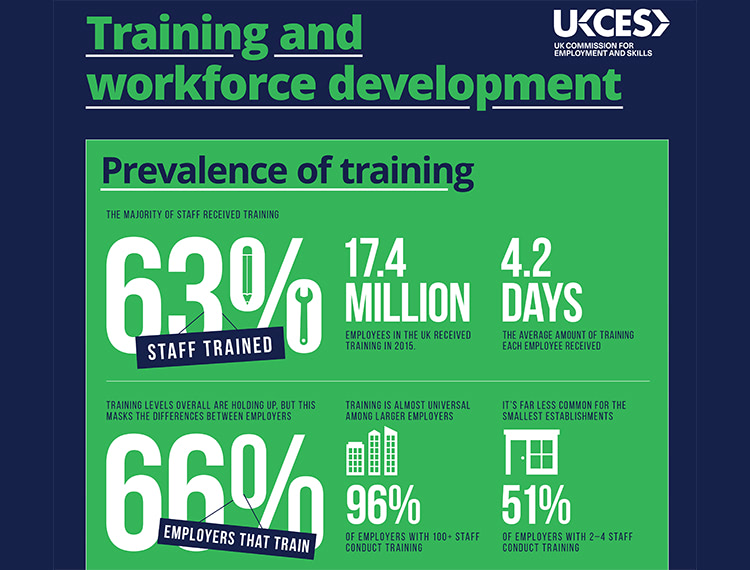Corrections to Employer Skills Survey

The UK Commission for Employment and Skills’ (UKCES) Employer Skills Survey, provides a comprehensive picture of skills needs and training investment, including vacancies and skills shortages, employee skill gaps and the recruitment of education leavers and young people.
Today (2 May) DfE updated the UK results from the UK Commission for Employment and Skills’ (UKCES) Employer Skills Survey 2015 of 91,000 employers. The underlying data and publications for the 2015 UK Employer Skills Survey (ESS) have been corrected and republished to rectify an occupational coding error for vacancies and retention difficulties.
The survey results were published in 2016 by the UK Commission for Employment and Skills, but responsibility for the survey has since passed to the Department for Education.
The corrections have the effect of reducing the number of vacancies and reported retention difficulties for ‘Elementary occupations’. At the national level, the effect is small, and makes no difference to the narrative of the report.
However, the changes are more pronounced for the following areas:
- East of England,
- North West,
- South West,
- Yorkshire and The Humber, and
- Northern Ireland.
This correction also has a very small effect on the skill lists related to skill shortage vacancies. Full detail of the changes can be found in the annexes of this document.
Description of error and impact Fieldwork for the Employer Skills Survey was conducted by three different contractors due to the large sample size of the survey. A coding inconsistency between fieldwork contractors meant that some occupations which should have been coded as ‘unclassifiable’1 were instead treated as generic ‘elementary2’ occupations.
This had the effect of inflating the number of vacancies (including hard-to-fill and skill shortage vacancies) and reported retention difficulties for the overall category of elementary occupations. This only affects analysis of vacancies and retention difficulties by occupation group.
The overall numbers of vacancies, skill shortage vacancies and retention difficulties are unaffected. Also unaffected are disaggregations of vacancies and retention difficulties by any variable other than occupation group. For instance, vacancies at the 4-digit SOC code level are unaffected, as are overall vacancies by area, industry, and for occupation groups other than ‘elementary’.
As the fieldwork contractors were allotted different areas, this coding error only affected fieldwork allocated to the following regions and country: East of England, North West, South West, and Northern Ireland. However, a small number of employers are reported in a different region where the postcode provided during the survey is different from the sample. This means there are some changes to English regions other than those outlined above – notably Yorkshire and the Humber.
Separately, as a result of the recoding error, the skill lists related to skill shortage vacancies (i.e. the detail on which skills were lacking) needed to be reweighted. This affects all areas to some degree, although the changes are small – generally no more than one percentage point. The report, data tables, and related outputs have been corrected and re-published on Gov.uk. Data deposited on Data.gov.uk and the UK Data Service have also been corrected. Any queries should be sent to employer.surveys@education.gov.uk
UKCES Employer Skills Survey 2015:
England and local toolkit
Northern Ireland Toolkit
Scotland toolkit
Wales Toolkit












Responses